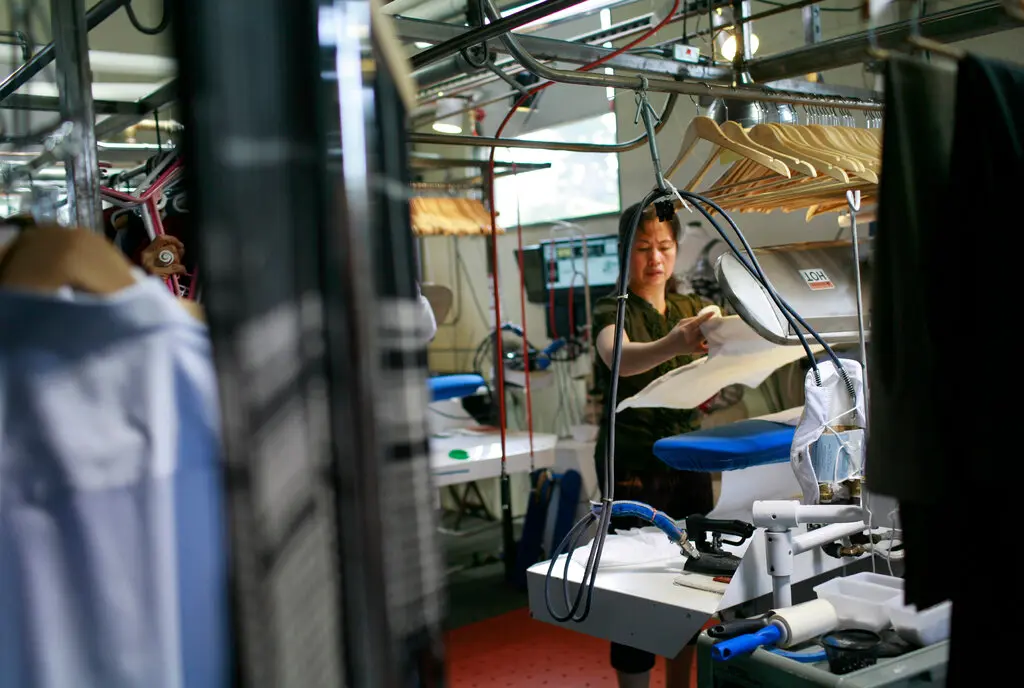The two solvents, known as Perc and TCE, cause kidney cancer and other ailments, and have been the subject of years of controversy.

For decades, communities close to factories, airports, dry cleaners and other sites have lived with the consequences of exposure to trichloroethylene, or TCE, a toxic chemical used in cleaners, spot removers, lubricants and glue.
TCE is known to cause liver cancer, kidney cancer and non-Hodgkin’s lymphoma, and to damage the nervous and immune systems. The E.P.A. is banning all uses of the chemical under the Toxic Substances Control Act, which was overhauled in 2016 to give the agency greater authority to regulate harmful chemicals.
The E.P.A. also banned all consumer uses of perchloroethylene, used in dry-cleaning and in automotive-care products. Though it is less harmful than TCE, the solvent, also called Perc, can cause liver, kidney, brain and testicular cancer, and can damage kidneys, the liver and the immune system.
The E.P.A.’s ban of Perc still allows for a range of industrial uses, including in aviation and defense, with the provision that strict rules must be in place to protect workers. Both bans were initially proposed in 2023.
“It’s simply unacceptable to continue to allow cancer-causing chemicals to be used for things like glue, dry cleaning or stain removers when safer alternatives exist,” said Michal Freedhoff, assistant administrator for the E.P.A. Office of Chemical Safety and Pollution Prevention.
Looming over the new rules is the return of President-elect Donald J. Trump, who during his first term presided over an effort to weaken chemical regulations and named a former executive for the American Chemistry Council, an industry organization, as a top deputy at the E.P.A.’s chemical safety office, raising concerns about corporate influence in the regulatory process.
Yet Mr. Trump said on the campaign trail that he wanted “the cleanest air and the cleanest water.” He has also said he is committed to “getting dangerous chemicals out of our environment.”
That reflects a recognition that concerns over pollution cut across party loyalties, said Jonathan Kalmuss-Katz, a senior attorney at Earthjustice, a legal nonprofit that advocated the TCE ban.
If the Trump administration tries to roll back the ban, Mr. Kalmuss-Katz said, “they’re going to encounter serious opposition from communities across the country that have been devastated by TCE, in both blue and red states.”
The E.P.A.’s ban was welcomed by environmental advocates like Linda Robles of Tucson, Ariz., whose daughter, Tianna, died in 2007 of a rare form of cancer and kidney failure, which Mrs. Robles believes was caused by TCE and other chemicals from Tucson International Airport and nearby military facilities.
Federal authorities discovered in the 1980s that the groundwater in Tucson’s south side, where Mrs. Robles lived with her family, was contaminated with TCE. The airport and military facilities are now Superfund sites undergoing government-led cleanup.
Industry groups have criticized the new restrictions. The American Chemistry Council said in a statement that “the rule as proposed would present multiple challenges that could have far-reaching impacts on various industries and the national economy.”
The Dry Cleaning and Laundry Institute and the National Cleaners Association said in comments submitted to the E.P.A. that “any future decision to reduce or phase out the use of Perc in dry-cleaning will put an oppressive burden on thousands of cleaners.” Dr. Freedhoff, the E.P.A. assistant administrator, said in an interview that safer alternatives were becoming readily available. “There’s simply no reason to continue to use this stuff to make glue, or as a dry cleaning aid, or to clean up grease,” she said. “The risk is just too great.”
Read the original article on nytimes.com

